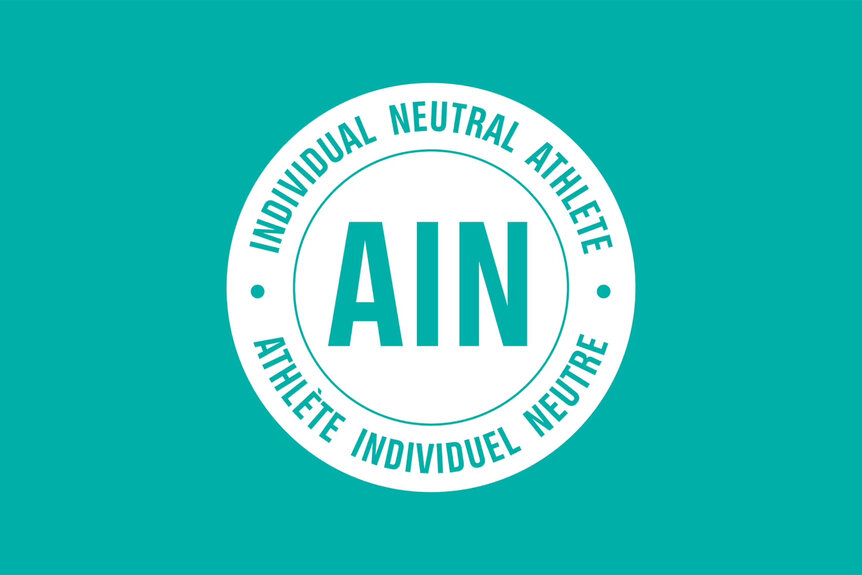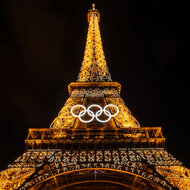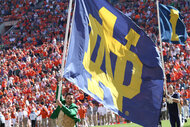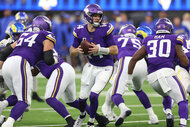What Are Individual Neutral Athletes in the Olympics? Everything to Know
Athletes holding passports from these two countries are banned from representing their nations in the 2024 Summer Games in Paris.
Athletes from multiple countries are prohibited from representing their nations in the 2024 Summer Olympic Games in Paris, a response to ongoing unrest overseas.
Individual Neutral Athletes (abbreviated as A.I.N.s from its French translation, Athlètes Individuels Neutres) are eligible Olympic competitors with Russian or Belarusian passports who are barred from representing their respective nations, according to the International Olympics Committee (I.O.C.). Such athletes must adhere to a strict set of guidelines to play in the Games in accordance with a December 2023 ruling by the I.O.C.’s Executive Board (E.B.).
The decision came nearly two years after the I.O.C. E.B. recommended that Russia be banned from international sports events in light of the unprecedented war resulting from their unprovoked invasion of Ukraine in 2022. The request for the ban, “in order to protect the integrity of global sports competitions and for the safety of all participants,” extended to Belarus, who staunchly supported the deadly attacks.
But there existed “a dilemma” by the Olympic Movement because, despite “full solidarity with the Ukrainian Olympic Community,” the I.O.C. said they didn’t wish to “punish athletes for the decisions of their government if they are not actively participating in them.”
Although the I.O.C. maintains that Russian and Belarusian governing bodies breached the Olympic Truce, the approval of A.I.N.s means a “very limited number” of qualifying athletes with Russian and Belarusian passports will get to compete in the Paris games between Friday, July 26, and Sunday, August 11, 2024.
Is Russia banned from the Olympics?
The Russian Olympic Committee (R.O.C.) — the banner given to Russian competitors after Russia was banned from the Olympics in 2019 — was suspended in October 2023 “with immediate effect” following the invasion of Ukraine.
The I.O.C. E.B.’s decision arose after the R.O.C. claimed several regional sports organizations in annexed Ukrainian territories — namely Donetsk, Kherson, Luhansk, and Zaporizhzhia — as their own. The organizations in the occupied cities, according to the I.O.C. E.B., fell “under the authority of the National Olympic Committee (N.O.C.) of Ukraine.” Therefore, Russia was in breach of the Olympic Charter for violating “territorial integrity.”
Russian athletes competed under the R.O.C. name after a massive doping scandal resulted in the World Anti-Doping Agency (W.A.D.A.) banning Russia from international sports for four years in 2019. Following appeals, a December 2020 ruling by the Court of Arbitration for Sport upheld a two-year ban, which prevented Russia from participating in the 2020 Tokyo Summer Games and the 2022 Beijing Winter Games, according to The Associated Press.
“Like all the other athletes at the Olympic Games, the Individual Neutral Athletes will also have to comply with the rules and regulations applicable at the Olympic Games, including anti-doping,” so the I.O.C.’s A.I.N. eligibility conditions begin.
RELATED: Brittney Griner Credits Wife Cherelle for Getting Her Through "Hardest" Part of Her Life
What are the rules for A.I.N.s?
A.I.N.s who’ve qualified through the International Federation’s (I.F.s) existing qualification systems are eligible to compete in the 2024 Summer Olympics but must comply with “the strict eligibility conditions” outlined by the I.O.C. E.B. in their December 2023 decision.
The list of rules was based on recommendations made by the I.O.C. to the I.F.s and international sports event organizers at the 11th Olympic Summit amid the Olympic Movement’s peace-building efforts.
Most obviously, Russia and Belarus will not be allowed to display their flag, anthem, colors, “or any other identifications whatsoever of Russia or Belarus” at the 2024 Games and its affiliated functions and venues. Government and state officials from both countries are not invited to the Games, nor can they be accredited.
Athletes and support personnel who “actively support the war” or are “contracted to the Russian or Belarusian military or national security agencies” will not be allowed to enter the Games.
In March 2024, the Individual Neutral Athlete Eligibility Review Panel (A.I.N.E.R.P.) was established to evaluate the eligibility of each athlete with a Russian or Belarusian passport.
RELATED: The Origin Story Behind Every Mascot in Olympics History (PHOTOS)
Who will be playing as an A.I.N.?
On June 15, 2024, the I.O.C. announced its first round of athletes deemed eligible or invited to compete in the 2024 Games, a list that includes 14 Russians and 11 Belarusians across five sports so far.
Russia’s Tamara Dronova and Alena Ivanchenko are named eligible for cycling, as is Belarus’ Hanna Tserakh for the women. Alexandr Vlasov is the only eligible male cyclist from Russia.
One female from each country is eligible to compete in gymnastics and trampoline, while Belarusian Olympic gold medalist Ivan Litvinovich will likely compete, filling the sport’s only male spot.
Taekwondo reserves four quotas (two male, two female) for A.I.N.s with Russian passports and one (male) quota for an A.I.N. with a Belarusian passport, though none were filled on the I.O.C.’s recent list. Meanwhile, weightlifting kept no quotas for Russian passport holders, though Belarusian champions Siuzanna Valodzka and Yauheni Tsikhantsou filled two of four quotas (three male, one female).
So far, six of a possible 11 men and four of a possible five women with Russian passports have been selected for wrestling, including 2021 European Champion Nachyn Mongush. Of the Belarusian passport holders, four men of seven quota spaces and two women of three quota spaces had been filled for the same sport.
More A.I.N.s are expected to be announced as the A.I.N.E.R.P. continues their reviews.
An I.O.C. spokesperson told CNN it was “unlikely” that quotas would be filled to the max 55 A.I.N.s from Russia and 28 from Belarus. Comparably, the Tokyo Games had 330 Russian athletes and 104 Belarusians in 2021 perform.
Ongoing support for Ukraine
The I.O.C. and the I.F.s maintain their “strongest commitment” to the Ukrainian Olympic Community, not just for Paris 2024 but the 2026 Winter Games in Milano Cortina, as published in a February statement. A solidarity fund that initially started as a $1 million donation by the I.O.C. has since climbed to $7.5 million, with much thanks to the European Olympic Committee and I.O.C. President Thomas Bach’s visit to Ukraine's capital, Kiev.
Bach thanked Ukrainian President Volodymyr Zelenskyy for confirming his “commitment to sport and the Olympic values.”
By February, roughly 3,000 Ukrainian athletes benefitted from the fund, which helped provide sports training facilities, meals, and accommodation ahead of the 2024 and 2026 Games.




















